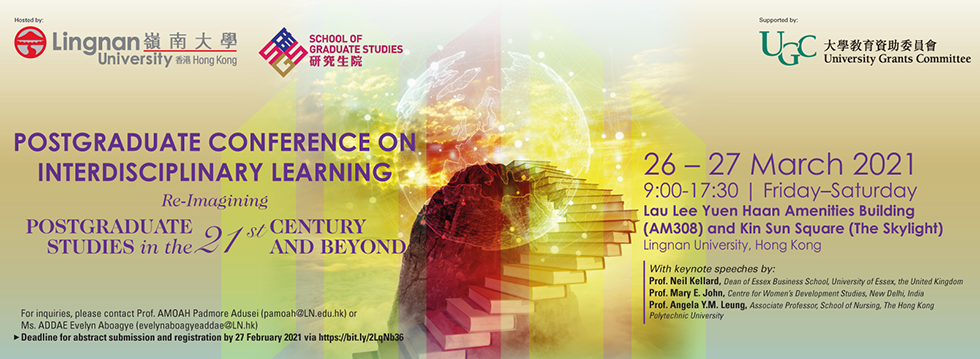
Individual differences and culture aids in meaning making to facilitate resilience after adversity
Start Date
27-3-2021 10:00 AM
End Date
27-3-2021 10:15 AM
Description
Though studies have highlighted the negative well-being impact of stress (Hobfoll, 1989), recent studies demonstrate resilience promoting role of stress (Crane & Searle, 2016; Seery et al., 2013) indicating challenge stressors and moderate lifetime adversity to promote resilience. Further, McGee et al., (2018) found manageability aspect of sense of coherence moderates stress resilience relationship. Similarly, Crane et al., (2019) found self-reflection to build resilience after stress exposure. However, subsequent self-reflection intervention study (Falon et al., 2021) found decreases in brooding explained the stress and resilience relationship. The current study utilises the meaning making framework (Park, 2010) to investigate how individual and cultural differences influence reflection, i.e. deliberate rumination, and meaning in life thereby predicting resilience. This study proposes that individual differences like neuroticism and introversion negatively moderates while dispositional mindfulness, extraversion, conscientiousness, agreeableness positively moderates the stress and deliberate rumination relationship. Extraversion and agreeableness are proposed to positively moderate the deliberate rumination and meaning in life relationship. Regarding cultural influences, Asians emphasise social-connectedness while Westerners emphasise independent self (Kitayama et al., 2020). Since social-connectedness is important for meaning making and meaning in life, it is proposed that social connectedness will interact with positive individual differences to incrementally predict meaning making and meaning in life. Finally, it is proposed that meaning in life, an aspect of meaning made resulting from meaning making process i.e. deliberate rumination, results in resilience. This study answers calls to investigate individual and cultural differences to understand how resilience is strengthened after stress exposure.
Recommended Citation
David, K. (2021, March). Individual differences and culture aids in meaning making to facilitate resilience after adversity. Presented at the Postgraduate Conference on Interdisciplinary Learning: Re-Imagining Postgraduate Studies in the 21st Century and Beyond. Lingnan University, Hong Kong.
Individual differences and culture aids in meaning making to facilitate resilience after adversity
Though studies have highlighted the negative well-being impact of stress (Hobfoll, 1989), recent studies demonstrate resilience promoting role of stress (Crane & Searle, 2016; Seery et al., 2013) indicating challenge stressors and moderate lifetime adversity to promote resilience. Further, McGee et al., (2018) found manageability aspect of sense of coherence moderates stress resilience relationship. Similarly, Crane et al., (2019) found self-reflection to build resilience after stress exposure. However, subsequent self-reflection intervention study (Falon et al., 2021) found decreases in brooding explained the stress and resilience relationship. The current study utilises the meaning making framework (Park, 2010) to investigate how individual and cultural differences influence reflection, i.e. deliberate rumination, and meaning in life thereby predicting resilience. This study proposes that individual differences like neuroticism and introversion negatively moderates while dispositional mindfulness, extraversion, conscientiousness, agreeableness positively moderates the stress and deliberate rumination relationship. Extraversion and agreeableness are proposed to positively moderate the deliberate rumination and meaning in life relationship. Regarding cultural influences, Asians emphasise social-connectedness while Westerners emphasise independent self (Kitayama et al., 2020). Since social-connectedness is important for meaning making and meaning in life, it is proposed that social connectedness will interact with positive individual differences to incrementally predict meaning making and meaning in life. Finally, it is proposed that meaning in life, an aspect of meaning made resulting from meaning making process i.e. deliberate rumination, results in resilience. This study answers calls to investigate individual and cultural differences to understand how resilience is strengthened after stress exposure.

